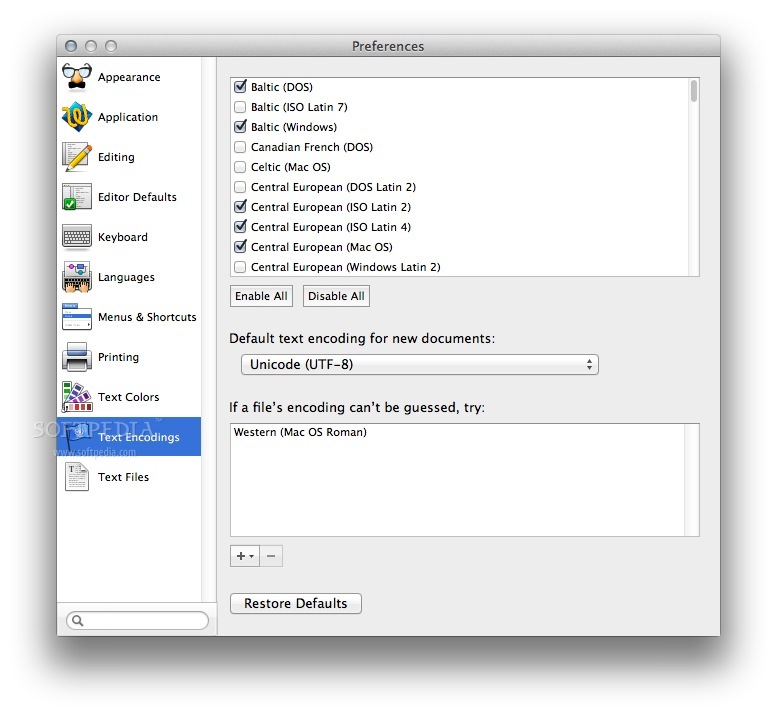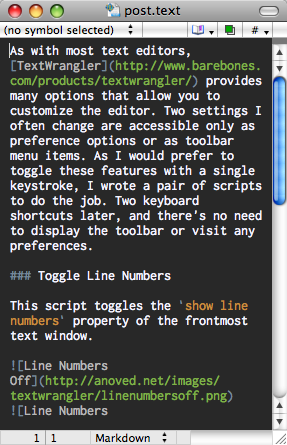

- #TEXTWRANGLER COMMAND LINE TOOLS INSTALL#
- #TEXTWRANGLER COMMAND LINE TOOLS 64 BIT#
- #TEXTWRANGLER COMMAND LINE TOOLS DOWNLOAD#

This is governed by the file type, and LaunchServices. If you had tested what you wrote, which the hosts recommend that you do, you would have discovered that setting the EDITOR environment variable has nothing to do with the open command's instinct for opening text files in TextEdit. Command Line Interface and Developer Tools Activity Instructions.
#TEXTWRANGLER COMMAND LINE TOOLS INSTALL#
The latter path is one of the default paths already included in $PATH, so you do not need to append it again.ĭepending on whether you install the respective TextWrangler, or BBEdit command-line tools, you will be assigning /usr/local/bin/edit, or /usr/local/bin/bbedit respectively, to the EDITOR environment variable, though as you will see below, this is unnecessary. On the TextWrangler (now BBEdit) Application menu, there is an option to install the proper command-line tools into /usr/local/bin. If you have more information or maybe corrections, please post a comment.Don't do that soft link to the GUI application binary. I use the direct types for when all the bits are used, and the fast types when I don’t use exactly but less bits.Īt last: don’t forget the LL or ULL suffix for 64bit constants (you can use ( U) INT64_C(num) for always the correct suffix, also for 8/16/32), and the “%lld” in a formatted string for 64bit variables. But since (u)int_leastY_t and (u)int_fastY_t are defined as (u)intY_t on OS X and iOS it should make no difference. To do a standard search and replace, you use the Search -> Find menu (Command + F), but to do a search and replace for multiple files, you can use the Search -> Multi-File Search menu (Command + Shift. It will list all the different files in the current directory you’re in. Im sure this is a very basic question, but Im just beginning to learn programming and Ive gotten to a lesson where I have to create a file in text wrangler, save it to the desktop (called test.txt) and then copy it into the terminal. Performance: you can use ( u) int_fast8_t for the fastest type, which can hold ( u) int_8_t. TextWrangler allows you to search for the company’s old address in those thousand pages and replace them all with the new address. It’s a general-purpose command-line fuzzy finder that allows you to find files based on whatever you type.

If you want exactly 8 bits, use int8_t for sigend or uint8_t for unsigned, for an integer which has at least those bits, use ( u) int_least8_t (analogue for 16/32/64 bits).

Answer: use NSInteger for pointers, ok usually you should use the pointer type itself, and for everything else use the size you require. You need the Developer tools (Xcode) from Apple installed (with Mountain Lion & Lion you need to go to Xcode preferences and install the command line tools). NSInteger has always the size of an pointer.
#TEXTWRANGLER COMMAND LINE TOOLS 64 BIT#
So, on 32bit OS X long is 32 bit, on 64bit OS X it’s 64 bit (unsure for iOS).
#TEXTWRANGLER COMMAND LINE TOOLS DOWNLOAD#
Add Tip Ask Question Comment Download Step 3: Set a Shortcut (Optional) Open TextWrangler's preferences. A new item should appear in the Scripts menu called 'C compile and run'. On OS X and iOS the following table shows you the the size of the types: char 8 bit Step 2: Put the Script in TextWrangler Open up TextWrangler, then go to 'Script menu > Open Scripts Folder' Copy the AppleScript to TextWrangler's Scripts folder. I was wondering whether I should use int, long or NSInteger.


 0 kommentar(er)
0 kommentar(er)
